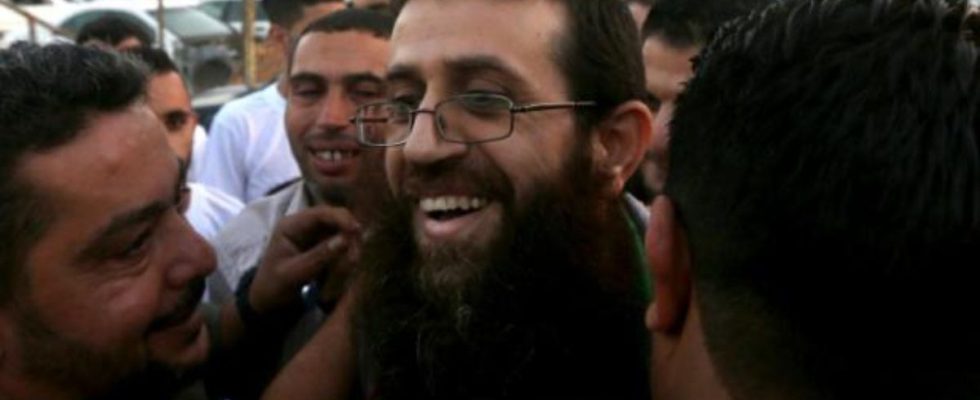A fatal hunger strike. Khader Adnane, a senior figure in the Palestinian Islamist movement Islamic Jihad who voluntarily went without food for 80 days to protest his detention by Israel, died Tuesday, concurring sources said.
Shortly after this announcement, rockets were fired at Israel from the Gaza Strip where Islamic Jihad has a strong presence, AFP journalists noted. The Israeli army said in a statement that three rockets were fired in total, adding that they fell into vacant lots. The Israeli prison administration announced in a press release the death of a prisoner affiliated with Islamic Jihad, “found unconscious in his cell” and then hospitalized.
Israel ‘will pay the price for this crime’ says Islamic Jihad
The Islamic Jihad and the Palestinian Prisoners Club, an association for the defense of the rights of Palestinians detained by Israel, confirmed to AFP the death of Khader Adnane at the age of 45. Israel “will pay the price for this crime,” said Islamic Jihad in a statement, a movement considered “terrorist” by Israel, the United States and the European Union.
“The free hero, Khader Adnane, died a martyr because of a crime committed by the enemy in front of the world, which approves of injustice and terrorism, protects and covers it,” added Islamic Jihad. The president of the Palestinian Prisoners Club, Qaddoura Fares, told AFP that this was the first Palestinian detainee to die in detention in Israel from a hunger strike.
The prisoner had started his hunger strike on February 5 and “refused to undergo medical examinations and receive treatment”, according to the Israeli prison administration. Khader Adnane, a native of the northern occupied West Bank, had been imprisoned numerous times by Israel and had gone on several hunger strikes, becoming a symbol for the Palestinians.
On Friday, his wife Randa Moussa explained to AFP that he refused “any assistance, any medical examination”. “He is in a cell where the conditions of detention are very difficult. They (Israel) refused to transfer him to a civilian hospital and to allow his lawyer to visit,” she added.

